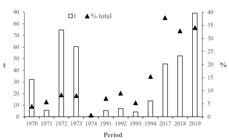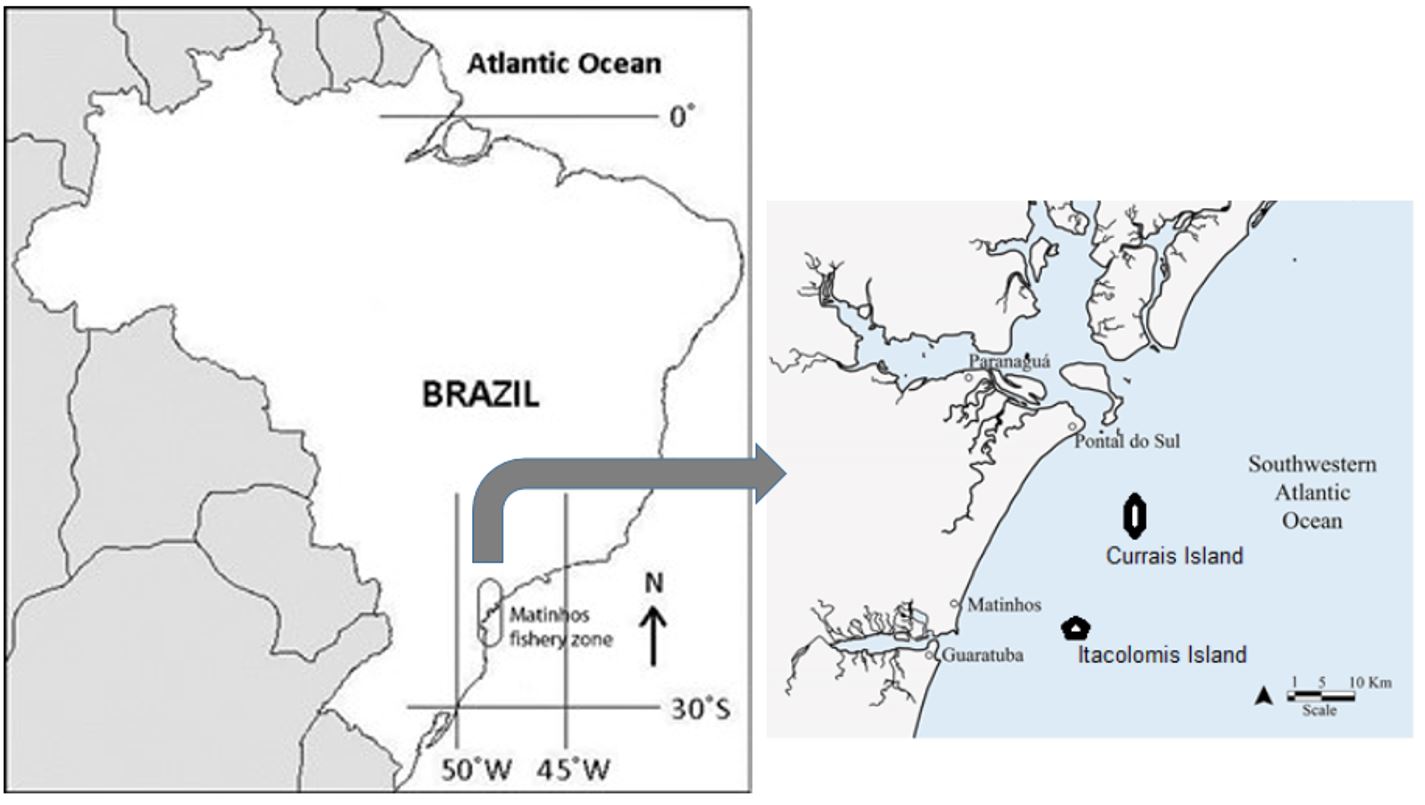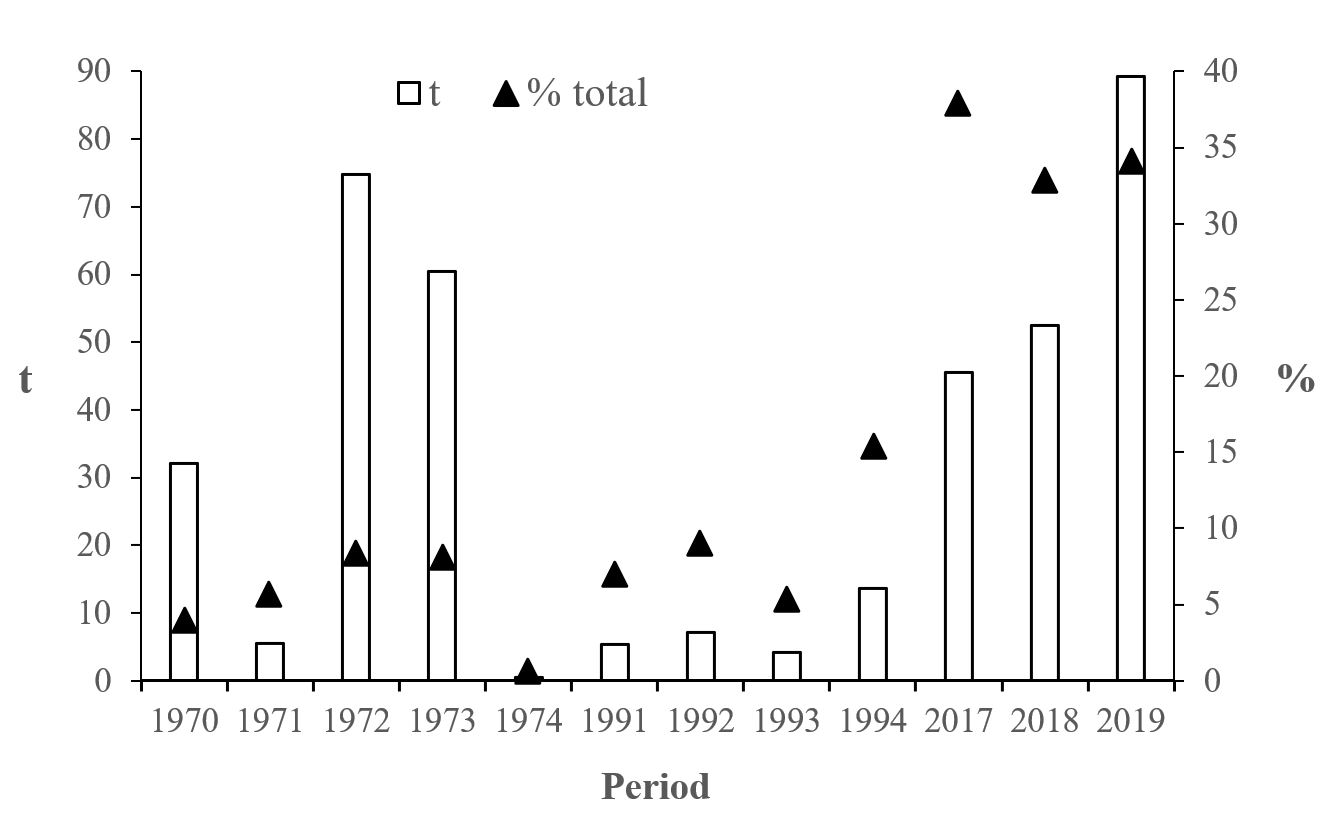Abstract
In fisheries, the phenomenon known as fishing down food webs is supposed to be a consequence of overfishing, which would be reflected in a reduction in the trophic level of landings. In such scenarios, the resilience of carnivorous, top predator species is particularly affected, making these resources the first to be depleted. The Serra Spanish mackerel, Scomberomorus brasiliensis, exemplifies a predator resource historically targeted by artisanal fisheries on the Brazilian coast. The present work analyzes landings in three periods within a 50-year timescale on the Parana coast, Southern Brazil, aiming to evaluate whether historical production has supposedly declined. Simultaneously, the diet was analyzed to confirm carnivorous habits and evaluate the trophic level in this region. Surprisingly, the results show that from the 1970’s to 2019 Serra Spanish mackerel production grew relatively to other resources, as well as in individual values. The trophic level was calculated as 4.238, similar to other Scomberomorus species, consisting of a case where landings increase over time, despite the high trophic level and large body size of the resource. The results agree with a recent global assessment that has demystified a necessary correlation between high trophic level and overexploitation, but possible factors acting on the present findings are discussed.
Keywords:
fishing; overfishing; diet; Scombridae; Brazil

 Thumbnail
Thumbnail
 Thumbnail
Thumbnail
 Thumbnail
Thumbnail
 Thumbnail
Thumbnail



